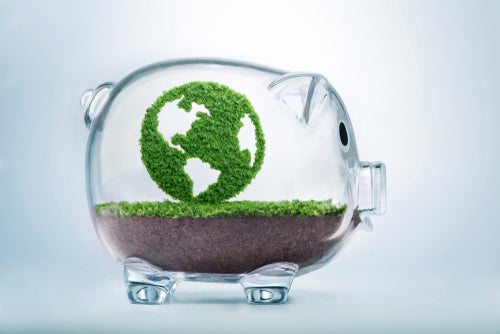
As we observe Earth Day 2022, roughly one in eight UK investors have actually invested in sustainable investment products.
This is according to research from Forrester which also stated that half of all sustainable investors are less than 50 years old (41% for all UK investors).
In addition, 80% of sustainable investors are higher-educated, compared to 59% of all investors.
Earth Day 2022: avoiding risk?
The majority if sustainable investors agree or strongly agree that they're willing to take investment risks in the hopes of better returns. However, with all UK investors, this falls to fewer than one in three.
How well do you really know your competitors?
Access the most comprehensive Company Profiles on the market, powered by GlobalData. Save hours of research. Gain competitive edge.

Thank you!
Your download email will arrive shortly
Not ready to buy yet? Download a free sample
We are confident about the unique quality of our Company Profiles. However, we want you to make the most beneficial decision for your business, so we offer a free sample that you can download by submitting the below form
By GlobalData45% of UK investors actually prioritised returns, while the rest leaned towards non-financial impact or sit on the fence. But, only 26% of those that weigh impact over return are invested in sustainable investment products.
Speaking to PBI, Ryan Skinner, principal analyst at Forrester, said: "Investment products associated with sustainability haven't been available that long; it's really only in the last year or two that these products have become common to find on the sites of the largest banks or investment managers. Put simply, many (particularly older) investors don't know about these products and don't ask about them, and financial advisors don't bring them up.”
So what will it take for more investors to take up these products?
Skinner continued: "First of all, it's important for asset managers and other financial services companies not to position sustainable investment products solely on their virtue; a recent study by NYU Stern found that positive ESG performance is very seldom associated with negative business performance (both corporate and financial).
"Second, they need to inform and educate investors about these products; most people aren't buying them simply because they don't know about them (even when those investors already have a lean towards sustainability)! Third, they can improve the products in a couple ways: through innovation and diversification in terms of impact-related products (investors may have very specific passions, such as fighting human slavery, or ocean plastics, and would respond to products dedicated to those causes), and through better ongoing reporting on the outcomes of their investments (i.e. "the companies in the fund collectively reduced their greenhouse gas emissions by X million tonnes in 2022") to build trust."
GlobalData aggregated thousands of records from its proprietary themes, jobs, deals and patents databases to identify the most active companies in the area of ESG in the wealth management & private banking sector.
DBS and Betterment are among the companies best positioned to take advantage of future ESG disruption in the wealth management & private banking industry, our analysis shows.
The assessment comes from GlobalData’s Thematic Research ecosystem, which ranks companies on a scale of one to five based on their likelihood to tackle challenges like ESG and emerge as long-term winners of the wealth management & private banking sector.








